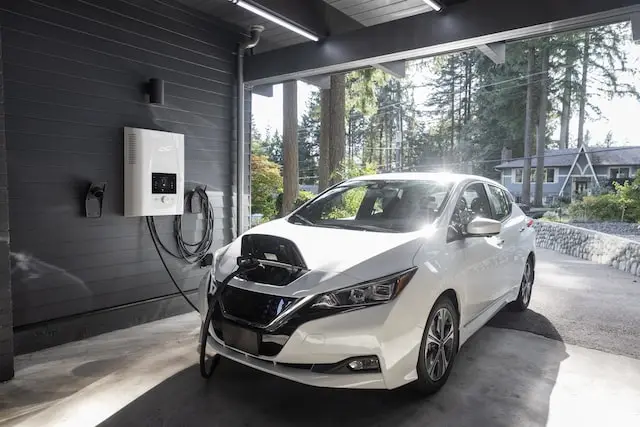Are EVs better for the Environment?
Cars have been a part of our ease and have been updated every now and then. Any update, evolution, or development for making them safer for the environment and efficient in use. This quote puts it better.
“We have to use cars much more efficiently. We have to look at alternative technologies for cars such as biofuels or, even more importantly, electric cars.”__Fatih Birol
What is an Electric Vehicle?
A vehicle powered by an electric motor rather than fuel combustion. EVs known as electric vehicles have a similar mechanism as power-saving units or mobile phones. They are like portable devices running on roads. The EV is plugged into an electrical outlet or charging station and the battery is charged for later use. This operation charges the power motor and that motor further uses this power to run the wheels and other small operations of the car.
The combustion system has been noticed as harmful to the environment and us as well. Now, this discovery has been around for some time now but the ultimate solutions took some time to be found or applicable. Electric vehicles or smart cars are quite popular now. Their popularity has been renowned as they offer a more user-friendly experience and luxuries rather than limitations.
EVs are becoming increasingly popular due to their potential to reduce greenhouse gas emissions and air pollution, as well as their lower operating costs compared to traditional gasoline-powered vehicles. There are several types of electric vehicles, including all-electric vehicles (AEVs), which are powered solely by electricity, and hybrid electric vehicles (HEVs), which have both an electric motor and an internal combustion engine and can be powered by either.

Working of EVs
An EV is like any other electronic device. They use electricity to power batteries and then run miles as long as there is charging or power within the batteries. Here are some basic conversion steps for electric vehicles.
- A DC battery having power stored within converts power to AC for it to be used for AC electric motor.
- Once the pedal is hit, the accelerator sends a signal or message to the controller for the inverter to increase AC signal frequency and so they adjust according to input and match the speed.
- The motor turns the wheel and gears attach with it to incorporate the comments provided.
- When the speed is lower or comes back to a stop, the motor becomes an alternator and produces power, sending it back to the battery for reuse at later times.
6 Pros and Cons of Electric Cars: Benefits and Drawbacks
Environmental Impact of EVs
EVs have several advantages over traditional gasoline-powered vehicles. And we will list a few important ones here.
Zero Carbon Combustion
The one top priority after the greenhouse effect causing us terrible diseases and other problems. We were looking for a way to not only minimize but also completely replace it. The primary benefit of electric vehicles (EVs) is that they do not emit tailpipe emissions, making them a potentially attractive option for countries looking to reduce their carbon emissions and improve air quality.
Low Operational Cost
They typically have lower operating costs, as electricity is generally cheaper than gasoline, and they require less maintenance, as they have fewer moving parts compared to an internal combustion engine. With some parts such as an Electric motor, Inverter, Battery, Battery charger, Controller, and Charging cable. They are easy to fix and replaceable as well.
Smooth Operation
As it has fewer parts and they work efficiently, the overall working is smooth. Most smart cars are automated, which means they give their user a worry-free drive and have elevated their internal system making it have a smoother ride. The combustion system is causing many a few problems that need to be checked every once in a while.

Easy Fix
Just in case, the car gets some technical error. EVs generally have lower operating costs than traditional internal combustion engine (ICE) vehicles, as they are cheaper to fuel and require less maintenance. With a few parts involved in working and easily replaceable. They are more easily fixed than normally fuelled vehicles. They also have lower operating costs, as electricity is generally cheaper than gasoline.
Is Wind Energy the Answer? Pros and Cons of Wind Energy
Wide Production
With the era of smart vehicles, there is a need for massive production. This creates a great opportunity for jobs. Create opportunities for education candidates and encourage them to come forward and take part in this succession. The whole electric vehicle has overall fewer parts but each part needs special attention in building hence countries like Germany have factories building just one part of the car each. They are prominent growing industries of the coming times.
Conclusion
Electric vehicles (EVs) can be a more environmentally friendly transportation option compared to traditional internal combustion engine (ICE) vehicles, but the extent to which they are better for the environment depends on a variety of factors. And the trend seen since they have been launched in the market can surely make it visible for all and encourage more people to shift to this use.
Frequently Asked Questions
What are EVs?
Are EVs better for the environment than gasoline-powered vehicles?
However, there are other factors to consider, such as the environmental impact of manufacturing EVs and the source of the electricity used to charge them.
What are the environmental benefits of EVs?
They can also have a lower overall environmental impact if the electricity used to charge them is generated from renewable sources such as solar or wind power.
What are the environmental drawbacks of EVs?
They may also have a higher environmental impact if they are disposed of improperly at the end of their lifespan.
How do EVs compare to gasoline-powered vehicles in terms of greenhouse gas emissions?
If the electricity is generated from fossil fuels, then EVs may still have a significant carbon footprint.
Are EVs more energy efficient than gasoline-powered vehicles?
Are there any other environmental considerations to take into account when comparing EVs to gasoline-powered vehicles?
It is important to consider these factors when evaluating the overall environmental impact of different types of vehicles.

